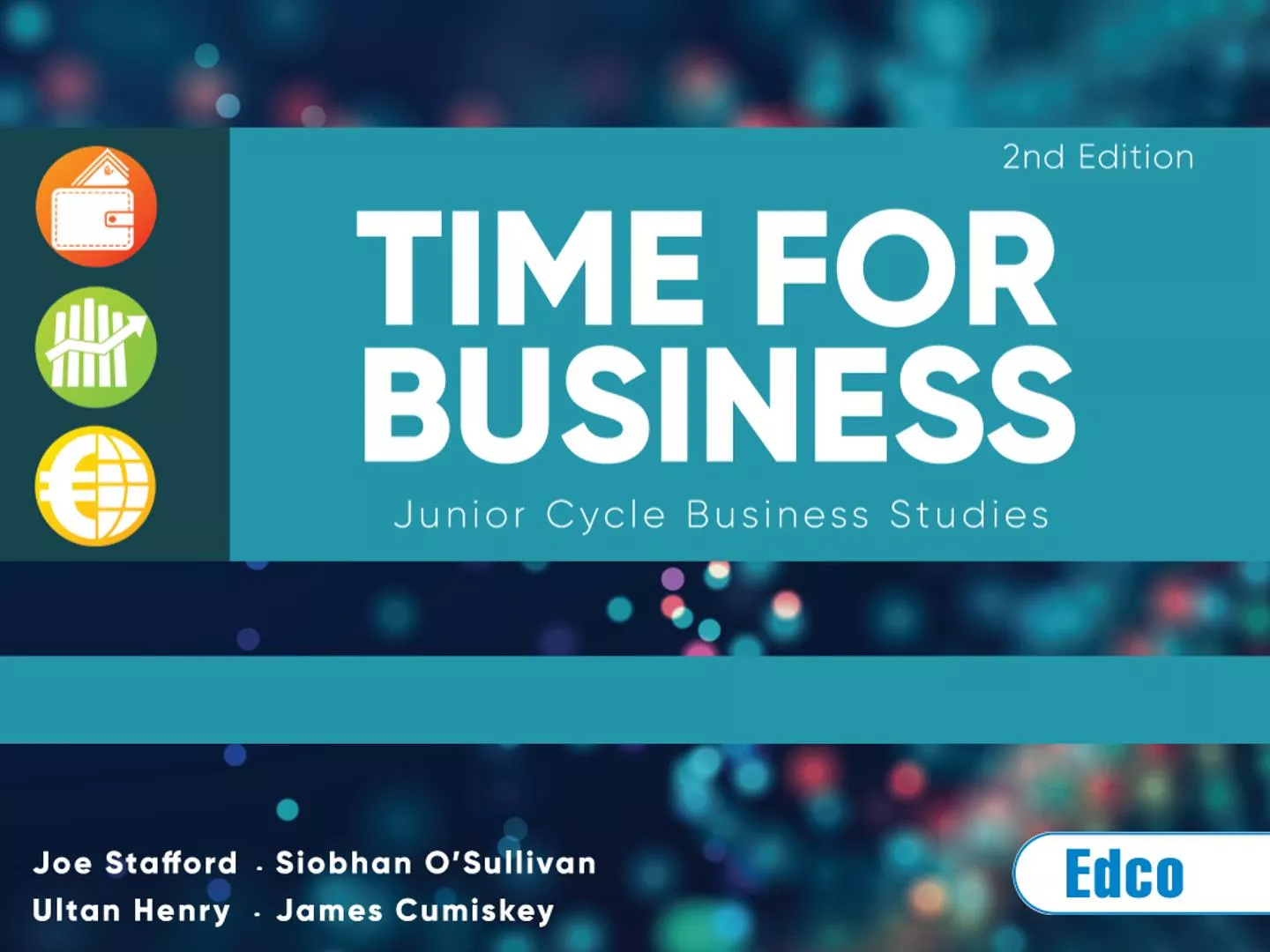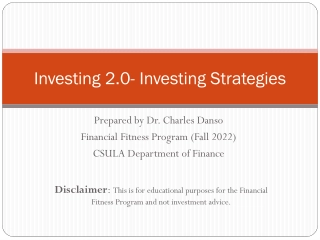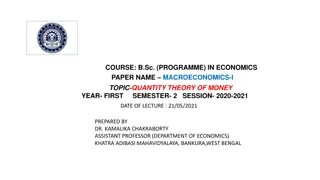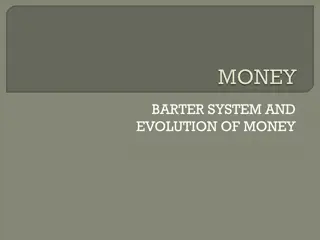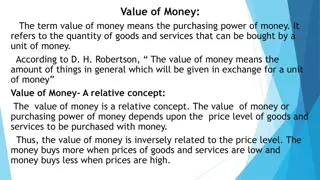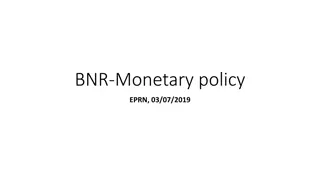Understanding Saving and Investing Money
This chapter delves into the importance of saving money for various purposes such as future expenditures, emergencies, and retirement. It also covers factors to consider when saving, including risk, reward, liquidity, and taxation implications. Furthermore, it discusses the safety of savings, the concept of earning interest on savings, and the ease of accessing saved funds when needed. Helpful insights on differentiating between saving and investing are provided, along with practical guidance on where to save money and the major savings products offered by financial institutions in Ireland.
Download Presentation

Please find below an Image/Link to download the presentation.
The content on the website is provided AS IS for your information and personal use only. It may not be sold, licensed, or shared on other websites without obtaining consent from the author. Download presentation by click this link. If you encounter any issues during the download, it is possible that the publisher has removed the file from their server.
E N D
Presentation Transcript
Chapter 7 Learning intentions In this chapter you will learn to: Outline the main reasons for saving money Consider where to save money List the major savings products offered by financial institutions in Ireland Outline the tax implications of saving Differentiate between saving and investing. Textbook page reference: 71
Chapter 7 What is saving? When we refer to savings, we mean the part of our income we choose not to spend. Textbook page reference: 72
Chapter 7 Reasons for saving money 1. For future planned expenditure 2. For emergencies 3. For major family events 4. For retirement 5. To improve credit rating Textbook page reference: 72
Chapter 7 Reasons for saving money A person s credit rating, or creditworthiness, reflects how likely they are to repay a loan. Banks are more likely to lend to those who have a good track record of saving Textbook page reference: 72
Chapter 7 Factors to consider when saving Risk Reward Liquidity Future benefits Taxation Convenience Terms and conditions Textbook page reference: 72
Chapter 7 Risk: will your savings be safe? Savers would like to be sure they will get their money back. Savings with An Post are State guaranteed , which means they are 100% secure and will definitely be repaid by the government. Textbook page reference: 73
Chapter 7 Reward: Will savings earn interest? Interest is a reward for saving your money with financial institutions. The rate quoted by financial institutions is the annual equivalent rate (AER). Textbook page reference: 73
Chapter 7 Liquidity Is it easy to withdraw or access your savings should you need to, i.e. how quickly can your savings be turned back into cash? Textbook page reference: 73
Chapter 7 Taxation: Will your interest be taxed? Deposit Interest Retention Tax (DIRT) is a tax on interest earned on savings. Textbook page reference: 73
Chapter 7 Convenience: Is it easy to lodge and withdraw money? Many banks provide online savings account for customers, which makes it easy to transfer money into them. Textbook page reference: 74
Chapter 7 Future benefits A history of saving with a financial institution may make it easier to get a loan from them in the future. Textbook page reference: 74
Chapter 7 Term and conditions (T&C s) may apply Are there fees and banking charges involved in operating a deposit account? Is there a minimum/maximum deposit required? Will you be penalised for withdrawing money early? Textbook page reference: 74
Chapter 7 Where to save Commercial banks An Post Credit unions Building societies Textbook page reference: 74
Chapter 7 Commercial banks Commercial banks are banks that households and individuals deal with. They offer a range of services, including savings (deposit) accounts. Textbook page reference: 75
Chapter 7 Types of deposit account offered by commercial banks Demand deposits allow you to withdraw your money on demand i.e. whenever you choose to. Term deposits require you to leave your money in the account for a certain length of time (the deposit term). Notice deposits require you to give the bank advance notice of your intention to withdraw money e.g. 10 days Textbook page reference: 75
Chapter 7 An Post An Post offers a range of State Savings products including deposit accounts, savings bonds, savings certs and prize bonds Textbook page reference: 75
Chapter 7 Credit unions A credit union is owned by members, who save together and lend to each other at a competitive rate of interest. Textbook page reference: 76
Chapter 7 Building societies The main reason for saving in a building society is to get a mortgage or a loan for upgrading property. Textbook page reference: 76
Chapter 7 Calculating interest on savings The simple interest formula is: Interest = Principal Time Rate Simple interest (also known as flat rate of interest) is money you can earn by saving money (the principal). Textbook page reference: 77
Chapter 7 Calculating interest on savings Compound interest is when interest is added to the savings and then that added interest also earns interest from then on. Textbook page reference: 77
Chapter 7 Deposit Interest Retention Tax (DIRT) DIRT is a tax on the interest earned on deposit accounts. Textbook page reference: 79
Chapter 7 Investing Investing is often seen as putting money aside in order to get a better return on it in the future. This is very similar to saving, but we expect to get some sort of extra reward for investing our money. Textbook page reference: 79
Chapter 7 Recap and review Can you: Outline the main reasons for saving money? Consider where to save money? List the major savings products offered by financial institutions in Ireland? Outline the tax implications of saving? Differentiate between saving and investing?
Chapter 7 Credit slide Shutterstock



